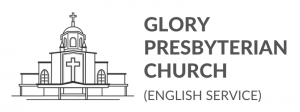- HOME
- LATEST
- ABOUT GPC
- NEW HERE?
-
MINISTRIES
- Ministry Awareness: Opportunities to Serve
- Care Group
- Church Wide Bible Study (CWBS)
- Family Ministry
- Filipina Fellowship
- Indonesian Fellowship
- Mission Ministry
- Music Ministry
- Outreach Ministry
- Precept Bible Study Ministry
- School Ministry
- Senior Adults Fellowship (SAFE)
- Sunday School
- Women Ministry
- Youth and Young Adults Ministry
- RESOURCES
- CONTACT US
- GIVE
- 中文部
By Rev Henry Hong
The Lord's Supper, also known as Communion or the Eucharist, is a significant sacrament in the Reformed tradition. Here are some biblical instructions and key points to consider while preparing for the celebration of the Lord's Supper:
1. Examine One's Heart: Before participating in the Lord's Supper, it is crucial for individuals to examine their hearts and repent of any known sin. This practice is based on the Apostle Paul's instruction in 1 Corinthians 11:28-29: "Let a person examine himself, then, and so eat of the bread and drink of the cup. For anyone who eats and drinks without discerning the body eats and drinks judgment on himself."
2. Focus on Christ's Sacrifice: The key significance of the Lord's Supper is in the remembrance of Jesus' sacrifice on the cross. The bread symbolizes His body broken for believers, and the wine (or grape juice) symbolizes His blood shed for the forgiveness of sins (Matthew 26:26-28).
3. Unity and Fellowship: It is important for participants to remember that the Lord's Supper is not just an individual experience but a communal one. It symbolizes the unity of the body of Christ. Paul emphasizes this in 1 Corinthians 10:16-17: "The cup of blessing that we bless, is it not a participation in the blood of Christ? The bread that we break, is it not a participation in the body of Christ? Because there is one bread, we who are many are one body, for we all partake of the one bread."
4. Remembering Christ's Return: There is a vital and vibrant connection between the Lord's Supper and the future hope of Christ's return. Jesus Himself indicated this in Matthew 26:29: "I tell you I will not drink again of this fruit of the vine until that day when I drink it new with you in my Father's kingdom."
5. Administering in an Orderly Manner: Church leaders are to administer the sacrament in an orderly and respectful manner, following the example of Christ during the Last Supper (Matthew 26:26-29, Mark 14:22-25, Luke 22:14-20).
6. Reading Relevant Scriptures: Reflect on biblical passages related to the Lord's Supper during the worship service. This might include the accounts of the Last Supper (Matthew 26:17-30, Mark 14:12-26, Luke 22:7-23), Paul's teachings on the Lord's Supper (1 Corinthians 10:14-22, 1 Corinthians 11:17-34), and other relevant passages.
7. Prayer and Thanksgiving: Participants are called to approach the Lord's Supper with a spirit of prayer and thanksgiving for Christ's sacrifice and grace. This reflects Paul's instruction in 1 Corinthians 11:24-25 when he quotes Jesus' words: "This is my body, which is for you. Do this in remembrance of me... This cup is the new covenant in my blood. Do this, as often as you drink it, in remembrance of me."
May our celebration of the Holy Communion draw us closer to Christ, abiding in Him and His Word.
“The sacraments have the same function as God’s Word: they offer Christ to us, and in him, the treasures of grace. They are useless if not received in faith just as wine and oil, when poured out, will go to waste unless they are poured into an open vessel. If the vessel is not open, it will remain empty even if the liquid is poured on to it.” (John Calvin, ‘The Institutes of Christian Religion,’ Modern Abridged Version).
